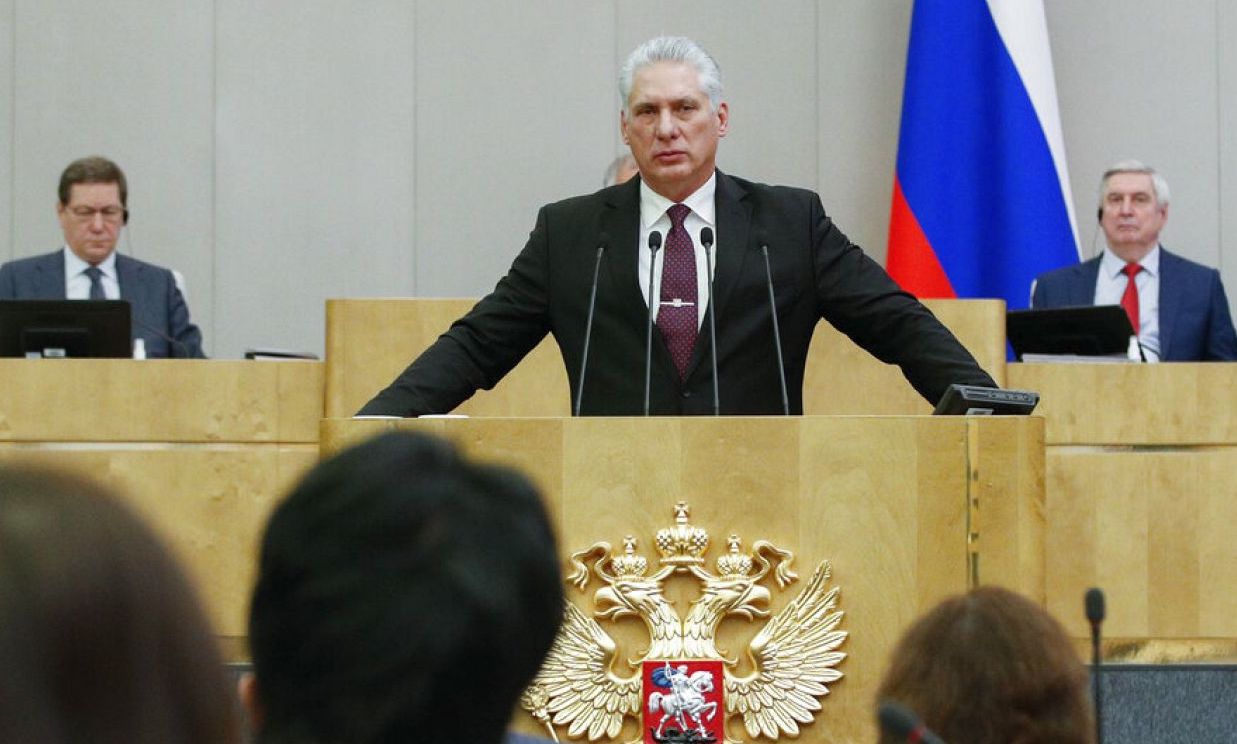The fact that Castroism would like to adopt the "Russian model" is obvious, as it seems to constitute a stable formula mixing a largely liberalized economy with discreetly privatized strategic state sectors, such as Banking, Communications and heavy and extractive industries, all under a dictatorial government that is only technically accountable, having legal mechanisms to concentrate and perpetuate itself in power.
Cuba, however, lacks what renders the Russian model viable: a productive sector (in Russia, hydrocarbons) providing the Government with sufficient revenue so that it can, without losing power, liberate the rest of the economy while having resources to cover every dictatorship's overhead: propaganda, repression, bureaucracy and loot to give out to avert power struggles in the leadership.
With the sugar industry destroyed, only tourism could be, for Castroism, what hydrocarbons are for Vladimir Putin, but even after years of investing at an irrational pace in hotels, which has decapitalized the country's agricultural and industrial production, they have not managed to turn tourism into that pivotal sector, nor will this be achieved as long as Americans cannot freely vacation in Cuba.
Let us recall that under Raúl Castro a diplomatic thaw with Washington was achieved, coming to an end with Donald Trump, aborted by Fidel Castro himself and hardliners still found in the CCP and the Armed Forces. It is hardly bold to surmise Raul was hoping that, eventually, the embargo would be relaxed, at which point tourism to the largest of the Antilles would explode, but that never happened.
As they await such an outcome they have been buying time with economic reforms that, for the most part, are just smoke and mirrors to instill hope in the people and convince them that they are doing things differently from Fidel, in a tacit recognition that it was he who got Cuba into this mess. Other reform measures have been maneuvers involving displacements of national revenue against small self-employed companies, which were flourishing until 2019.
Only recently, with the situation hitting rock bottom, and after the national uprising on 11J, did they begin to introduce partial liberalizations, such as the MSME law, which is, actually, a first step towards the remote-controlled privatization demanded by the Russian model.
This internal crisis, which, incredibly, continues to get even worse (the price paid for having electricity is less food, medicine and transport) is compounded by an external crisis. A lawsuit in London for less than $100 million could trigger a string of lawsuits pushing Cuba into default. Economist Carmelo Mesa-Lago has just calculated that the foreign debt stands at over 29.78 billion dollars, while The Economist Unit estimates that the foreign reserves are 4.103 billion, so Castro Cuba owes 7.26 dollars for each one that it owns. This paints a dire picture.
Against this backdrop, at the end of 2022 Miguel Díaz-Canel made a humiliating tour, visiting Cuba-friendly dictatorships to plead for more time to pay. A little more than a month later, a contingent of Russian "businessmen" just met with the Government in Havana, and it has been announced that Cuba will be advised on economic issues by a Russian institute with clearly pro-capitalist leanings.
One does not have to be a genius to deduce that at the Kremlin they told Diaz-Canel that, if he wanted more time and money, he had to not only accelerate reform in Cuba, but do so according to Moscow's counsel and preferences, thereby prostituting national sovereignty once again to save the regime. Of course, he accepted.
Thus, if Castroism is speeding up its transition from a supposedly socialist dictatorship to a supposedly capitalist one, with Russian advice and control, it is not because it feels prepared to do so without ceding some power, but rather because it has either been directly forced to do so by Moscow, or it realizes that it is on the verge of the abyss, and if it does not do something soon, even if risky, it faces another social uprising and international abandonment by its totalitarian cronies.
Therefore, the announcement of a new "Russification" of the Cuban economy is, of course, terrible and threatening news, even humiliating, but it is also confirmation of the regime's crisis, and every crisis is also an opportunity.
